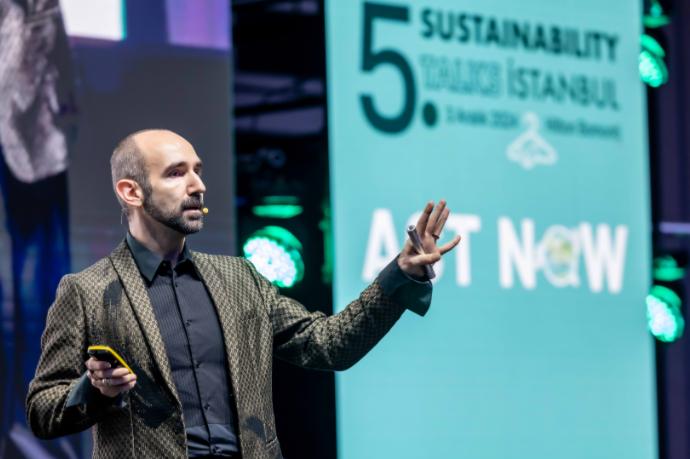Dr. Hakan Karaosman is leading a vital movement to make the fashion industry more transparent and accountable. With a background rooted in the practical realities of garment production, he has emerged as a renowned advocate for sustainable fashion and responsible supply chain management. His journey began in a modest home where his mother sewed garments to support the family, shaping his understanding of labor and dignity in the industry.
Currently, as an Associate Professor at Politecnico di Milano and a Visiting Scholar at University College Dublin, Karaosman occupies a pivotal role that bridges academia, policy, and industry. His influence extends beyond the classroom; he has co-founded FReSCH (Fashion’s Responsible Supply Chain Hub), a European Union-backed initiative that strives to reshape the fashion landscape through genuine reform rather than superficial environmental, social, and governance (ESG) statements.
Karaosman’s impressive credentials include a collaborative relationship with the United Nations Fashion and Lifestyle Network and partnerships with high-profile brands such as Prada and Salvatore Ferragamo. His focus remains on the garment workers, particularly women in the Global South, whose labor is essential to the multi-trillion-dollar fashion industry.
Transforming Fashion Through Structural Reform
Trained initially as an environmental engineer, Karaosman furthered his education with an Erasmus Mundus Master’s in energy and environmental management across Spain, France, and Sweden. His Ph.D. is a joint award from Politecnico di Milano and Universidad Politécnica de Madrid, emphasizing sustainability integration within luxury fashion supply chains.
In an industry where sustainability often gets reduced to carbon counting and marketing gimmicks, Karaosman takes a people-first approach. Through FReSCH, he has built a coalition of NGOs, workers, researchers, creatives, and policymakers to tackle pressing issues, including heat stress in garment factories and the systemic invisibility of labor. His insights have informed initiatives by the European Commission, the Welsh Government, and various UN bodies. Additionally, the academic work produced by FReSCH has been widely disseminated and translated into practical tools for industry use.
Karaosman’s contributions to the field have earned him notable accolades. His insights were featured prominently in a five-part series on sustainable fashion by Forbes, highlighting the urgent need for systemic reforms in global supply chains. He was included in the Vogue Business 100 Innovators: Class of 2023, received the Greenpeace Italia Voice for the Climate Award, and earned Cardiff University’s Excellence in Sustainability Award. Recently, FReSCH was recognized with the Financial Times Responsible Business Education Award for its commitment to translating academic insights into real-world applications.
Shaping Future Leaders in Sustainable Practices
Dr. Karaosman’s upcoming work at Politecnico di Milano focuses on three critical areas: social justice, decarbonization, and supply chain resilience. His teaching methods emphasize systems thinking, inclusive leadership, and actionable strategies, preparing students to not only enter the fashion industry but also to instigate meaningful change within it.
In addition to his academic role, Karaosman actively leads discussions at high-impact events ranging from Milan Fashion Week to TEDx platforms. These gatherings provide a unique opportunity for garment workers to share their experiences alongside luxury executives and government officials, redefining traditional power dynamics in the industry.
In a sector too often preoccupied with aesthetics, Dr. Hakan Karaosman stands out as a figure who integrates academic rigor, genuine experience, and collective action. His commitment to justice is not merely an aspect of sustainability; it is a foundational element that promises to reshape the future of the fashion industry. As he continues to champion transparency and accountability, the path toward a more equitable fashion landscape becomes increasingly clear.
